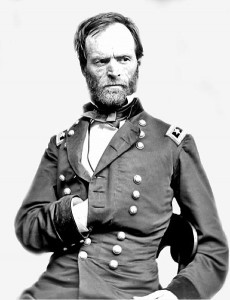Jason Kottke has, per usual, an excellent post, this one about Cram’s Unrivaled Family Atlas of the World, an 1884 reference book that contained a map of the planet’s tallest buildings or “Diagram of the Principal High Buildings of the World.” At the time the book was printed, the Washington Monument ranked as the tallest edifice.
Some background on the book’s publisher: George F. Cram (1842-1928) served in the U.S. Army and marched with General William Tecumseh Sherman during the Civil War, before joining the map business in Illinois with his uncle Rufus Blanchard. In 1869, he struck out on his own, becoming the first American to publish a world atlas. The George F. Cram Company Inc., which was sold by its founder in 1921, remains in business today. Here’s an excerpt about Cram and his war memoirs, Soldiering With Sherman, on Amazon:
“Rare among Civil War correspondence, the collection of Union Sergeant George F. Cram’s letters reveals an educated young man’s experiences as part of Sherman’s army. Advancing through the Confederacy with the 105th Illinois Infantry Regiment, Cram engaged in a number of key conflicts, such as Resaca, Peachtree Creek, Kennesaw, and Sherman’s ‘march to the sea.’
A highly literate college student who carried a copy of Shakespeare in his knapsack, Cram wrote candid letters that convey insights into the social dimensions of America’s Civil War. With a piercing objectivity, optimism, and a dry sense of humor, Cram conscientiously reported the details of camp life. His vivid depictions of the campaigns throughout Alabama, Georgia, and the Carolinas contribute new insights into the battle scenes and key Union leaders.
Cram and several of his compatriots adhered to a principled code of personal conduct (no smoking, swearing, drinking, or gambling), striving to maintain integrity and honor in the face of war’s hardships and temptations. Influenced by the abolitionist values of his community and college, Cram’s observations on the effects of slavery and on the poverty of many of the Southerners are especially illuminating.”


